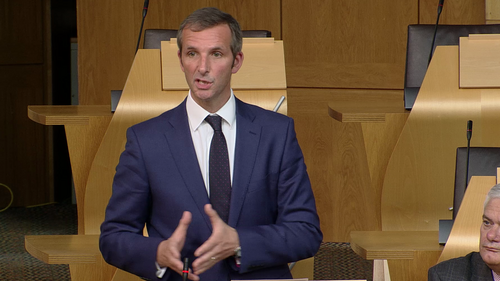McArthur: Government could use dirty tactics amid rubbish progress on waste targets

Scottish Liberal Democrat climate emergency spokesperson Liam McArthur MSP has today warned that the Scottish Government could soon be deploying “dirty tactics" to comply with upcoming ban for certain types of waste, as he revealed that ministers are failing to meet key targets for landfill reduction and recycling.
According to SEPA’s latest statistics for 2022, the Scottish Government has a target for less than 5% of waste to be sent to landfill, but that number is currently sitting at 23.2%.
The government also has a target for 70% of waste to be recycled by 2025, but this is currently at 62.3%. It has taken eleven years for the amount of waste recycled to increase by 10%.
A ban on disposing Biodegradable Municipal Waste (BMW) in landfill was originally scheduled to come into force in 2021, however this commitment has been hit by a series of delays. The ban is now scheduled to come into force four years’ late in 2025.
Green MSP and former Circular Economy Minister, Lorna Slater, previously suggested that excess waste could simply be shipped out of Scotland and dumped somewhere else. She admitted that when the BMW ban comes into place, “there may be temporary under-capacity of residual waste treatment in Scotland” and that “export is one of the short-term options for the treatment of residual waste.”
Mr McArthur said:
“Landfill won’t be a dumping ground for this government much longer. With targets being missed by miles, however, it’s not clear what ministers plan to do with all its excess waste, and there has been some suggestion that the government could simply ship it south of the border.
“Carrying lorryloads of rubbish to be landfilled just beyond Berwick is even worse for the environment than landfilling it here due to the emissions generated by those journeys. If this was happening in reverse, the SNP would be up in arms.
“Rubbish progress and dirty tactics won’t cut it. Ministers must deliver support for businesses and households to reduce waste, through better recycling schemes and a latte levy, and facilitate a transition to more environmentally friendly methods of production.”
